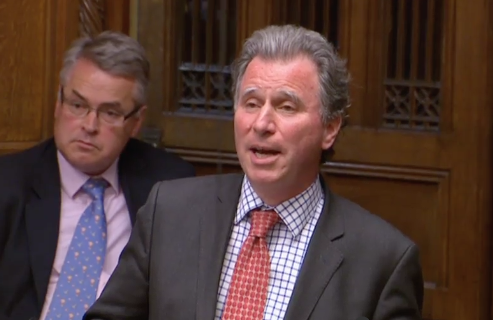The leader of the House, Andrea Leadsom, said earlier today that the government wanted to put the Prime Minister's Withdrawal Agreement before Parliament a third time before the end of this week. Speaker John Bercow has ruled that the motion put before MPs must be substantively different from the previous two occasions, citing the precedent that the same motion can't be put before Parliament twice in the same session.
In the light of the reports that a third vote might take place on Thursday or Friday, Bercow repeated that warning from the chair just now. And he also warned the government against using procedural devices to get around it.
This is what he said:
“I understand that the government may be thinking of bringing Meaningful Vote 3 before the House either tomorrow or even on Friday. I do expect the government to meet the test of change. They should not seek to circumvent my ruling by means of tabling either a notwithstanding motion or a paving motion.”
That's setting off all sorts of alarm bells. It would be deeply ironic if, having finally secured the support of arch-Brexiteers like Jacob Rees-Mogg and Boris Johnson, and momentum flowing in the direction of her deal, the Speaker prevents it being voted on.
Such a move would cause even more bad blood between the Speaker and the government than exists now. And it would make things very problematic for Downing Street. Most commentators think the only way around that would be to dissolve this parliamentary session and start a new one. The trouble is, that would involve the Queen, who must give her assent to such a move. Buckingham Palace would be very nervous about a constitutionally apolitical monarch being inserted into a sensitive political situation.





